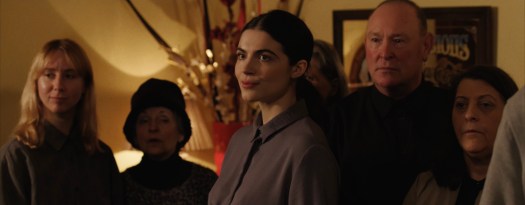
REVIEW: Royal Philharmonic Orchestra Brass (and other thoughts), Leeds Town Hall, October 24
TWELVE heroes from the Royal Philharmonic Orchestra – ten brass players and two percussionists – travelled to Leeds on Saturday to play before an audience of around five dozen.
Simon Wright conducted them in a stimulating mixed bag of music from the last 130 years, plus an early interjection from Giovanni Gabrieli.
Harmless though this may sound, the event was hugely significant. Locally based groups, notably from Opera North, have been appearing at the Town Hall since late August. But this was the first time that a professional ensemble from further afield had appeared there since lockdown.
Later this week, there will be two lunchtime events and three evening lieder recitals, all given by musicians of international standing. And that’s just on the classical side. So, it can be done, all within the regulations: distanced seating, masks worn by the audience, no interval or refreshments. But these are small privations compared to the thrill of live music returning. Leeds Playhouse has been equally adventurous.
In other cities, the silence continues to be deafening. Take York, for example, normally a bastion of classical performance. The Minster, the Barbican, University of York’s Central Hall, all are large venues well suited to music and easily adaptable to the new conditions.
Smaller but equally adaptable is the National Centre for Early Music and the university’s Lyons Concert Hall. All remain resolutely shut. Why? Hasn’t government (our) money been made available to keep such venues open?
Back to the brass. They opened with an ingenious arrangement of Elgar’s Cockaigne (In London Town) by one of their own, trombonist Matthew Knight. Given its complexity, it was a surprising choice as opener and took a while to settle.
But the main theme emerged triumphant on the trombones just in time for the accelerando towards the close. With the Town Hall so empty, and therefore even more resonant than usual, Gabrieli’s Canzon on the seventh tone had a regal clarity, comparable surely to St Mark’s Venice itself, as the two quartets bounced off another; it might have made a better curtain-raiser.
Imogen Holst’s Leiston Suite (1967) delivered five neatly concentrated miniatures, including a sparkling fanfare, a balletic jig and several flashes of her father’s spare harmony, all tastefully interwoven.
Eric Crees’ skilful arrangements of three Spanish dances by Granados were enchantingly idiomatic, rays of mediterranean sunshine. The colours in Duke Ellington’s bluesy Chelsea Bridge were more muted.
Hartlepool-born Jim Parker’s name may not be on everyone’s lips, but most of us have heard his music through his soundtracks for Midsomer Murders, Foyle’s War, Moll Flanders and any number of films. Why he has four BAFTAS to his name became clear in A Londoner In New York (1987), five attractive cameos of the city’s buzz, including steam engines at Grand Central, a romantic walk in Central Park, and the can-can chorus line at Radio City.
London came to Leeds here and we may all be grateful for the glimpse of normality.
Review by Martin Dreyer






